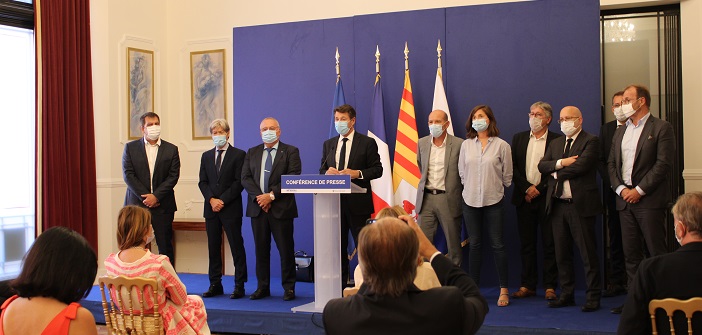Yesterday, Christian Estrosi spoke in his capacity as mayor of Nice, president of the Nice Côte d’Azur Metropolis, and deputy president of the PACA region to discuss the proposed economic recovery plan announced by the State last week. As a spokesperson for the mayors of France, he wanted to address the government on several points.
- Extend the recovery plan from two to six years. This change aims to allow local executives to work on projects that must run for the entire duration of their mandate. In Nice, for example, this concerns several projects like the modernization of the wastewater treatment plant belonging to the Metropolis, which will cost 300 million euros, the energy recovery plant (200 million euros), and many others. “If the government, which has every interest in as much investment as possible benefiting from the recovery plan, agrees to adopt a six-year plan doctrine, it can allow us to benefit more quickly from the things we have scheduled during our mandate,” points out the mayor, who at the same time emphasizes that “this recovery plan must not become a mere label for projects whose funding is already guaranteed elsewhere.”
- A plan whose final announcement is slow to see the light of day. Planned in the draft finance laws for 2021, its examination will be submitted to Parliament during the month of October 2020 and voted on by the end of 2020.
- Grant a bonus to local authorities that increase their investments to create new dynamics. “Some choose to focus on operation, we choose to prioritize investment. It is the best way to bring growth and strengthen the GDP.” An idea based on the Sarkozy recovery plan implemented between 2008 and 2010, which aimed to inject 26 billion euros after the “Subprime” crisis.
- Use the recovery plan to finance other projects. Among them is the future project for the demolition and reconstruction of the Parc des Congrès and Expositions as well as the Victorine studios to create a vocational campus for the audiovisual industry. Two projects will cost approximately just under 300 million euros (240 million and 45 million, respectively) and aim to create jobs in the business tourism and culture sectors.
Christian Estrosi seems confident in the implementation of these various requests: “I have already initiated discussions with the government, which I sensed was very open to this opportunity.”


